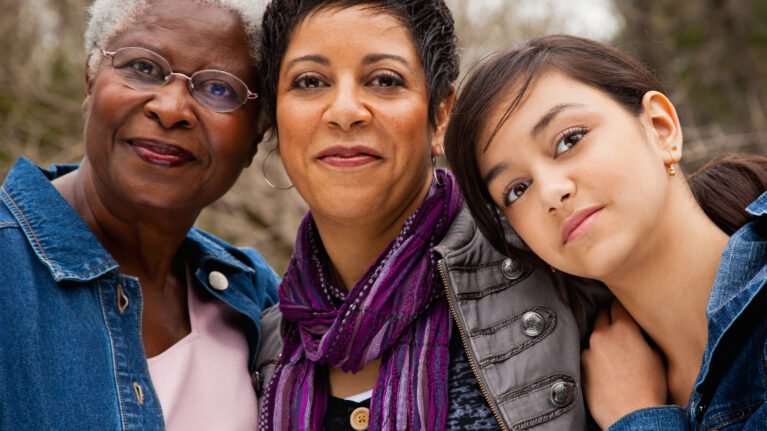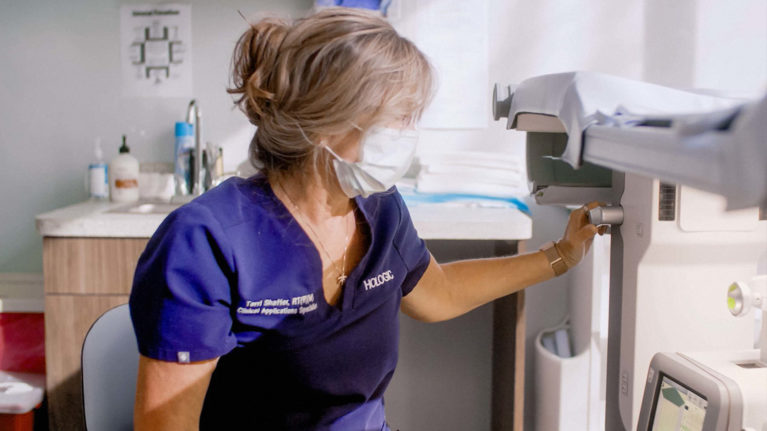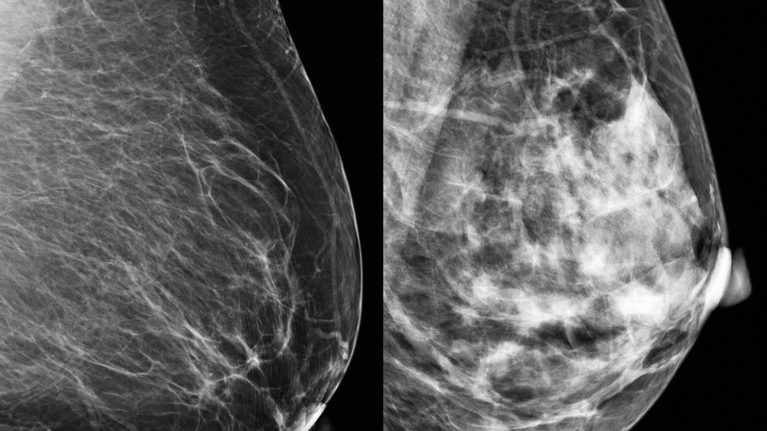The Facts About Breast Cancer Risk

What are the Risk Factors for Breast Cancer?
Some women are at a higher risk for developing breast cancer than others. Knowing your breast cancer risk can help you take control of your health. That’s because you can change some factors that increase your risk – like exercising more. And when you know about any factors you can’t change, such as your family history, you can make more informed decisions about your health.
It’s important to discuss your risk factors with your doctor, as it can determine when you begin breast cancer screening. Your doctor may also use your risk factors to decide if you need other screening methods, like a breast ultrasound, in addition to your yearly 3D™ mammogram.
Below are some common breast cancer risk factors.
- Age
The risk of breast cancer can increase with age, especially if you have gone through menopause22. In fact, most breast cancers are diagnosed after age 50. - Genetics
Your breast cancer risk increases with certain gene mutations, like one in the BRCA1 and BRCA2 genes. In fact, BRCA1 and BRCA2 mutations may account for up to 10% of all breast cancer cases38. While genetic mutations may seem intimidating, remember that it doesn’t mean you’ll get cancer, just that you are at a higher risk for breast cancer. - Family History
If several of your family members had cancer, you may be at risk yourself. If one first-degree relative– such as your mother, sister, or daughter– had breast cancer, your risk increases.39 By knowing your family history, you are empowered to ask your doctor about when to start screening and what screening method is best for you. - Breast Density
While all breasts are made up of connective, glandular and fatty tissues, dense breasts have more connective tissue than fatty tissue and can make it more difficult to identify cancers. Dense breast tissue is common–nearly 50% of women have dense breasts. Breast density is not based on how your breasts look or feel, but rather what the tissue looks like on a 3D™ mammogram. Knowing your breast density helps you make the most informed health decisions.40 - Lifestyle
Your chances of developing breast cancer increase with a lack of exercise and being overweight. You can take control of this risk factor by adding physical activity into your lifestyle, eating a balanced diet and limiting how much alcohol you drink.37 - Previous Cancers
If you previously had breast cancer, you are more likely to develop it again. This risk is different than the risk of recurrence for the original breast cancer.37
Understanding your risk factors allows you to be your own advocate and make the best decisions for your health. You should discuss your risk factors with a health care professional to determine your individual breast screening plan.


